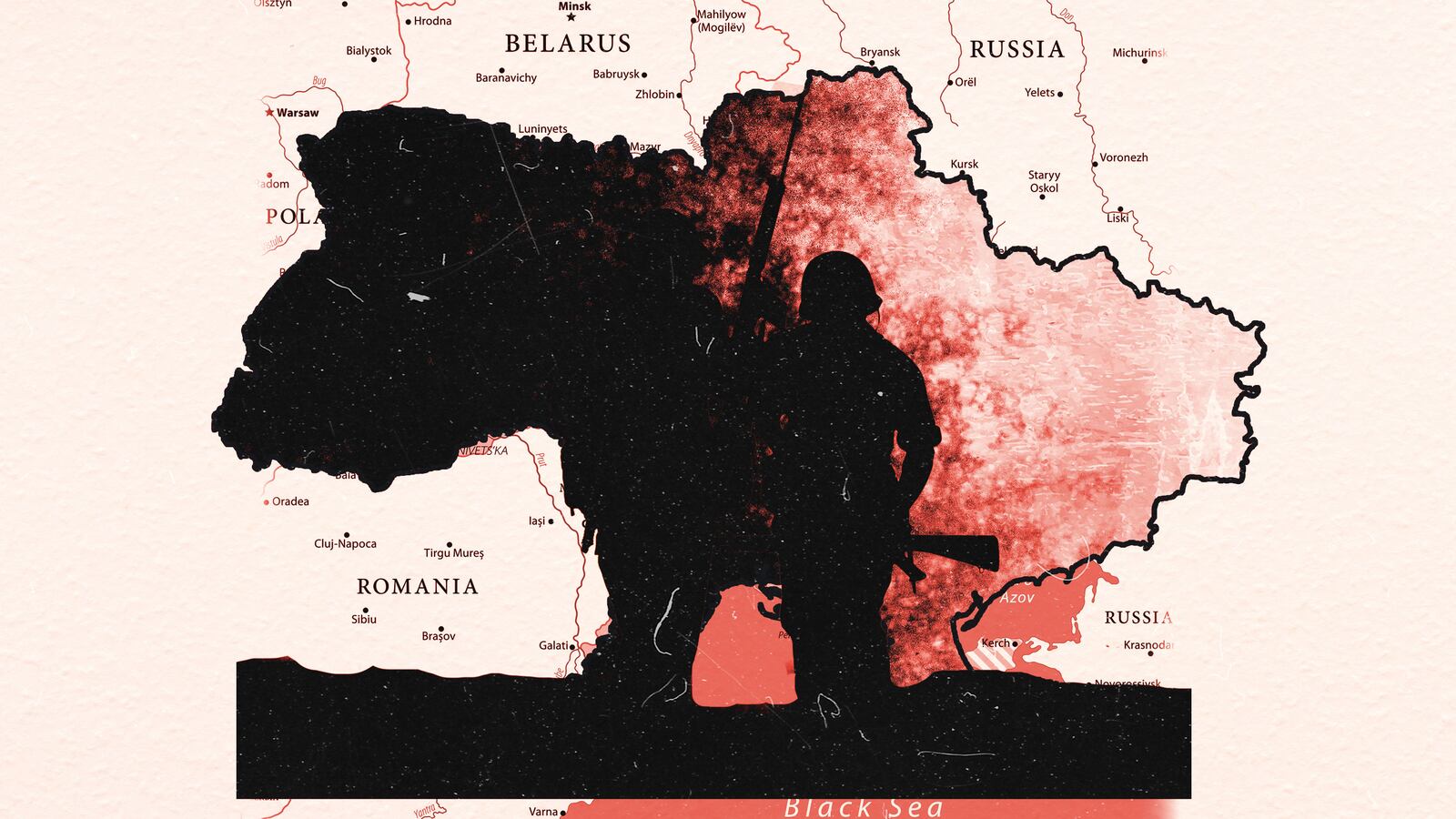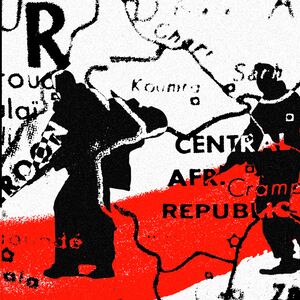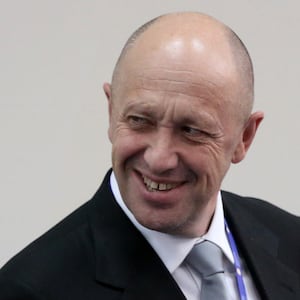ABUJA, Nigeria—Russia’s infamous Wagner Group has abandoned dozens of former Central African Republic (CAR) rebels in Ukraine’s Donbas region after recruiting them to fight Vladimir Putin’s war, two former CAR fighters told The Daily Beast.
The CAR sources, who were recruited by Wagner after quitting the Union for Peace (UPC) rebel group last December, said that many of the 100 or so ex-UPC fighters currently in Ukraine have lost contact with Wagner after the group trained them and flew them to the Donbas region about eight months ago.
“Some of our colleagues have called us [on the phone] to inform us that the Russian soldiers who took them to eastern Ukraine deployed them to a particular town and left them to fight on their own,” Ali, who was not part of the group sent to Ukraine, told The Daily Beast. “As we speak, they haven’t been paid for months and they can’t even feed themselves.” (The Daily Beast has changed the names of its sources to protect them from possible retribution.)
Some ex-UPC recruits, often referred to as “Black Russians” by many in CAR, are now having to “steal from civilians” to be able to survive the hardships in Ukraine, according to Ali.
In February, the same month Russia invaded Ukraine, more than 200 former UPC rebels traveled to Moscow for military training that was originally expected to last for weeks at a Wagner camp, according to senior CAR military officials who spoke with The Daily Beast in March. Only half returned to the country that month while the rest remained in Russia for deployment in Ukraine.
“By the middle of March, everyone [the Black Russians] were in eastern Ukraine fighting for Russia,” Hassan, who—like Ali—wasn’t among the Black Russians sent to Ukraine but has been in touch with some of his colleagues there, told The Daily Beast. “But our people are now saying that they have been left on their own by their [Russian] commanders. No one is looking after them.”
The situation is “terrible” for Black Russians in Ukraine, according to Hassan, who said he has spoken to three of his colleagues this November and that they all fear for their lives. “They’ve told me that they don’t even have ammunition to fight,” said Hassan. “Some of them have not been seen by their colleagues for months.”
Before joining Wagner, the rebels were part of a coalition of fighters from major rebel groups created in 2020 to disrupt a Central African general election.
Last December, hundreds of rebels from the UPC, whose leader Ali Darassa was sanctioned about a year ago by the U.S. Department of the Treasury’s Office of Foreign Assets Control (OFAC), began to surrender to the CAR government. Both the government and Wagner group offered incentives for rebels to abandon the UPC, including promises that the fighters would work closely with CAR troops and Wagner mercenaries to fight other rebels. Fighters like Ali and Hassan—both in their thirties—switched sides, hoping they’d be well catered for. But, like their colleagues currently in Ukraine, they aren’t faring much better at home.
For most of the year, Black Russians have received no pay from Wagner or the CAR government which promised to place them on monthly stipends, according to both Ali and Hassan. Yet, they continue to work closely with Wagner in fighting rebel groups in the country who have come together under the Coalition of Patriots for Change (CPC) and are seeking to topple the government of President Faustin-Archange Touadéra.
“It’s very difficult working with the Russians because they don’t trust any of us,” said Hassan. “Oftentimes, they make us move around the country with them without telling us exactly where we are going to.”
But what is most disturbing to Ali and Hassan is the fact that dozens of their colleagues in CAR have been disappearing in recent months without a trace.
“For two months now up to 50 of our colleagues have mysteriously disappeared,” said Ali. “No one knows where they are and the Russians aren’t answering questions regarding their whereabouts.”
There’s suspicion among Black Russians in CAR that their missing colleagues may have been sent to Ukraine to fight for Russia but “no one is sure,” according to Ali.
“There are also a few people who are suspecting that they may have been sent on a dangerous mission at home or abroad and have been killed in the process,” said Ali. “No one may ever know the truth because these Russians do everything in secret.”
Out of fear they too could go missing, Ali and Hassan—just last week—decided to pull away from Wagner. They aren’t the only ones. According to both men, as many as 30 former UPC rebels have recently left the group. One local publication even put the number of Black Russians who have so far deserted Wagner at 40.
Neither the CAR government nor Yevgeny Prigozhin, a close friend of Putin who runs the Wagner Group, has responded to emails sent to them by The Daily Beast requesting comments on the allegations made by Ali and Hassan. Emails sent to the spokesperson of the CAR government and to Concord Management, a company majority-owned by Prigozhin, went unanswered.
A significant number of Black Russians continue to work with the Wagner Group despite allegations of poor treatment and mysterious disappearances. But for those who’ve had enough of the organization’s excesses, there’s no better time to say goodbye.
“If we didn’t leave, one day people would also say we’ve gone missing,” said Hassan. “With these Russians, anything is possible.”








